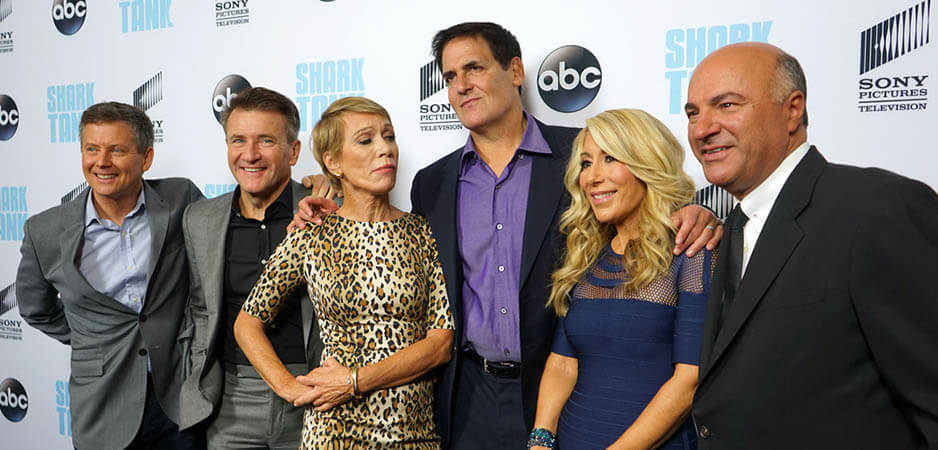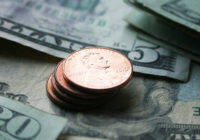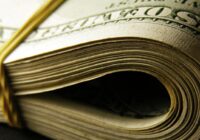Mark Cuban, who may run for US president in 2020, believes poverty is the first step that everyone must go through before becoming rich. The Daily Devil’s Dictionary explains.
The worldviews of billionaires are often skewed by the compulsion to appeal to romantic notions about their own heroism and reinforce memes derived from a common repository of cultural kitsch. Citing his own life struggles, celebrity billionaire Mark Cuban argues in favor of voluntary austerity as the key to becoming rich. Promoting the values of a civilization in which everyone is expected to dream of being a millionaire, he offers inspiring but at the same heavily moralizing advice to the rest of struggling America.
Cuban remembers a book that inspired him when he was young: How to Retire at 35. He sums up its key message, which he seems to believe the average Jane and Joe in the street could apply and achieve their dream if they simply put their mind to it: “The whole premise of the book was that if you could save up $1 million and live like a student, you could retire.”
Here is today’s 3D definition:
Student:
Formerly a person living at subsistence-level poverty and dedicated for three or four years to investing in knowledge and culture
In the 21st century (US): a person who, thanks to a student loan, is enrolled in a university to have fun and get a degree that they (usually mistakenly) expect to produce the future ability to pay back the loan, not understanding that a more likely outcome will be a life of debt peonage
Contextual note
Cuban delights in recounting that he “had the worst possible car.” Most students throughout history couldn’t dream of having a car, new or broken down, and probably still don’t. But billionaires may be less aware of that reality than ordinary people. For them, not having the latest, most expensive article available — whether it’s a car or an iPhone — is tantamount to living “like a student.”
Still, Cuban is right to push this inspiring narrative, at least to bolster his own image, especially since he appears to be toying with the idea that now appears to cross the mind of so many billionaires (e.g., Mark Zuckerberg, Michael Bloomberg, Howard Schultz): running for president in 2020. Cuban highlights an important contrast with his erstwhile collaborator (on the television show, Shark Tank) and current nemesis, Donald Trump, who, according to his own spurious claims, started with the paltry sum of a million dollars. Compared to Trump’s billions today, this does appear to be the equivalent of a broken-down car. Those who have researched Trump’s life say he had a lot more.
Historical note
Cuban may simply be recycling Benjamin Franklin’s quotation “a penny saved is a penny earned,” which became the proverbial transformation of Franklin’s actual text, “a penny saved is a penny got,” published in his Poor Richard’s Almanack.
The difference, however, is important. Franklin was indeed preaching the wisdom of frugality or the virtue of “husbandry” — the frugal management of the wise farmer mentioned in the Bible — which became a major theme in Puritan culture and still has its proponents, though you won’t find many on Wall Street, where riches are made in an instant.
One modern proponent describes the attitude Cuban seems to be recommending: “Industry, thrift, and frugality lead to independence because there is an order in the universe, an order in which rewards are likely to be proportioned to effort, in which possessions may be augmented by careful husbandry, in which thrift will be rewarded by increased savings.”
In other contexts, Cuban has all sorts of ideas about not so much how to get rich, but how to get richer, using strategies and tactics that have nothing to do with frugality or husbandry. He assumes that wise investment is the key to entering the class of the very rich, but that the only way to acquire that wisdom is to be frugal and save. As he says, “Instead of coffee, drink water. Instead of going to McDonald’s, eat Mac and Cheese” (i.e., homemade macaroni with melted cheese). As everyone should now know, McDonald’s is where you should go only when you’ve attained the level of wealth of Warren Buffett.
In short, Mark Cuban, the avid reader of Ayn Rand, wants people to believe the traditional myths about money and capitalism, at the risk of contradicting himself. The 17th-century Puritan virtue of Biblical husbandry wouldn’t endorse the attitude that Cuban learned from Ayn Rand: that led him to “take risks to reach my goals.” The principle of frugality in the traditional Puritan economy, from which capitalism emerged, was not merely a “startup” virtue that allowed you to build up the cash to make risky investments. It was a moral principle that Puritans were expected to respect during their full lifetime.
The historian R.H. Tawney described the process: “The Protestant ethic, with its insistence on hard work, thrift, etc., had contributed to the rise of capitalism, but at the same time Protestantism itself was being influenced by an increasingly capitalistic society.”
The irony is that the modern casino capitalism and consumer society — the world Cuban thrives in — still feels it must cite the long lost Puritan virtues to convince people to accept and even celebrate its brutal competitive constraints while dreaming the impossible dream of becoming rich.
*[In the age of Oscar Wilde and Mark Twain, another American wit, the journalist Ambrose Bierce, produced a series of satirical definitions of commonly used terms, throwing light on their hidden meanings in real discourse. Bierce eventually collected and published them as a book, The Devil’s Dictionary, in 1911. We have shamelessly appropriated his title in the interest of continuing his wholesome pedagogical effort to enlighten generations of readers of the news.]
The views expressed in this article are the author’s own and do not necessarily reflect Fair Observer’s editorial policy.
Support Fair Observer
We rely on your support for our independence, diversity and quality.
For more than 10 years, Fair Observer has been free, fair and independent. No billionaire owns us, no advertisers control us. We are a reader-supported nonprofit. Unlike many other publications, we keep our content free for readers regardless of where they live or whether they can afford to pay. We have no paywalls and no ads.
In the post-truth era of fake news, echo chambers and filter bubbles, we publish a plurality of perspectives from around the world. Anyone can publish with us, but everyone goes through a rigorous editorial process. So, you get fact-checked, well-reasoned content instead of noise.
We publish 2,500+ voices from 90+ countries. We also conduct education and training programs
on subjects ranging from digital media and journalism to writing and critical thinking. This
doesn’t come cheap. Servers, editors, trainers and web developers cost
money.
Please consider supporting us on a regular basis as a recurring donor or a
sustaining member.
Will you support FO’s journalism?
We rely on your support for our independence, diversity and quality.






